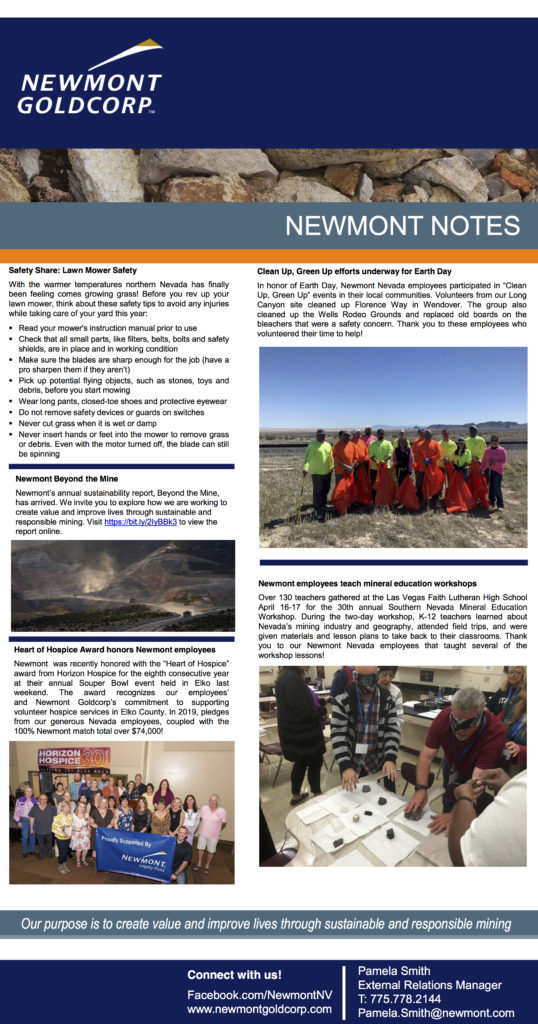Published in the High Desert Advocate May 2nd, 2019 Edition.

By Glenn Mollette
October 27 the Tree of Life synagogue in Pittsburgh was attacked. During Shabbat morning services 46-year-old shooter Robert Gregory Bowers killed eleven people and injured seven others.
Hate showed its ugly face again last Saturday at Congregation Chabad in Poway, California, a community about 22 miles north of San Diego. Suspect John Earnest a 19-year-old student at California State University San Marcus, wearing sunglasses, pointed his automatic rifle at Rabbi Yisroel Goldstein. “I couldn’t see his eyes. I couldn’t see his soul,” said Goldstein. Earnest who had just shot 60-year-old Lori Kaye a close family friend proceeded to shoot at Rabbi Goldstein and shot off one of the Rabbi’s index fingers and severely wounded the other index finger.
The gunman killed Kaye and wounded three others – including an 8-year old girl and uncle who was visiting from Israel. Reports indicate the gun jammed and an off duty armed border patrol agent who had been invited by Rabbi Goldstein to always attend armed as a precaution chased after the shooter.
Earnest is also suspected in setting fire to an Escondido California mosque which just happened March 25th.
On March 15 in New Zealand 50 people were killed by a shooter at mosques in Christchurch. The attacks began at the Al Noor Mosque and then continued at the Linwood Islamic Centre. Fifty people were killed and fifty more injured in New Zealand.
On June 17, 2015, Dylann Roff a 21-year-old murdered nine African Americans including the senior pastor, state senator Clementa C. Pinckney during a prayer service at the Emmanuel African Methodist Episcopal Church in Downtown Charlestown, South Carolina. Three victims survived.
On November 5, 2017 First Baptist Church, Sutherland Springs, Texas – 26 year-old Devin Patrick killed 26 people and wounded 20 others.
On September 24, 2017, Emanuel Kidega Samson, 25, was charged with killing a woman and wounding six others at Brunette Chapel Church of Christ in Nashville, Tennessee
From Nigeria in Western Africa it’s difficult to keep up with the massive numbers of churches that are being burned and Christians slaughtered.
For too long there has been hatred between all religions. However, these terrorist acts aren’t being carried out by people of faith. They are coming from the mentally ill filled with hate. Hate in whatever form it appears is always ugly and often people are hurt.
We have to stop the hate. We have to stop it in politics, social media, entertainment and religion. Hate consumes the soul, lashes out in ugliness and leaves severe wounds and scars.
Sadly, always have a couple of people standing in the entrance of your place of worship. They can at last spot somebody entering with an automatic rifle. Plus, they need to be armed and willing to use their weapons.
Most importantly we must all individually do our part to eliminate hate filled ugliness from society.
Ten Reasons to Never get the Microchiphttp://www.happypreppers.com/chips.html
We Can’t Walk Back Police Transparency
By Wesley Juhl
Nevada police departments have made strides toward transparency in recent years. But law enforcement needs more sunshine to foster the public’s trust.
Senate Bill 287 can help police agencies get there. The bill updates the state’s public records law with added accountability measures – mirroring those in the open meeting law – and ensures access to information and accountability for all Nevadans. The bipartisan bill is backed by journalists, researchers, parents, taxpayers and advocacy groups on both sides of the political spectrum.
Government lobbyists lined up to oppose the bill. Now they’re working to water it down and add new restrictions on records the people have a right to see. Police agencies have had some of the sharpest criticism of the measure, including at times misleading statements that show contempt for journalists.
Police are forgetting that they–and Nevada– have benefited from journalism and transparency policies.
Almost eight years ago, a Review-Journal investigation into the use of lethal force by Las Vegas police exposed serious problems with training, policies and oversight. The investigation relied heavily on public records. Now we talk about police policies such as de-escalation and mental health interventions, and most state law enforcement agencies have learned that releasing body camera footage and records of critical incidents builds public trust. Nevada is better for it.
And yet police still block access to public information. Through my work with the Society of Professional Journalists, I talk to a lot of Nevada reporters, and I hear this all the time: Our public records law isn’t working.
At a hearing for SB 287 held earlier this month, Metro’s Chuck Callaway and Matt Christian referenced the 1 October tragedy again and again in their opposition to the bill, claiming transparency was burdensome. But in the absence of full disclosure, conspiracy theories flourished. Multiple news agencies had to take the department to court to get public records they already were entitled to.
These community emergencies need more light, more facts, and more answers, not additional restrictions and resistance from police. Police continue to argue that the 1 October shooting is reason to further restrict the types of police records the public can access.
That’s the wrong approach, and here’s why: After a world-shaking event, journalists search for the answers the public needs. How was the emergency response? How was our community damaged, and how do we heal? How do we make sure it doesn’t happen again? What data do we need to inform good policy?
Journalists search for those answers using public records. Police reports may reveal ways we can make our community safer. Memos and emails can shine a light on important policies involving immigration, violent crime, jail deaths and traffic safety. And the release of body camera footage of use-of-force events can prevent community divisions.
SB 287 would make this information more accessible and ensure cooperation and accountability from the police and every other government agency. We need to get rid of excessive fees and unnecessary delays. We need a public records law with teeth. Not just for journalists, but for all Nevadans.
It is likely the opposition will continue to say transparency is costly and burdensome. Government lobbyists are moving to restrict the definition of public records in the bill and to give police and other agencies more power to withhold information from the public.
Such efforts are contrary to everything law enforcement “should stand for, and that’s transparency.” Those words came from Gov. Steve Sisolak in 2015, when he was a Clark County commissioner and oversaw police funding as a member of its Fiscal Affairs Committee.
We can’t go backward on police transparency. I know if we move forward, Nevada will be better for it. Please contact your lawmakers and urge them to support passage of SB 287.
Wesley Juhl is the president of the Las Vegas chapter of the Society of Professional Journalists. The association advocates for journalists and encourages high standards and ethical reporting in Nevada.




